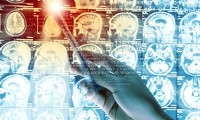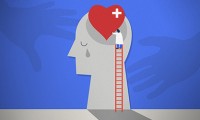-
Connection between Anxiety, Depression and Migraine Studied by Novartis & Healint with Self Tracking App
- Source: Ddu
- 1,163
- September 3, 2018
-
Anxiety, Depression Increased Chances of Cardiac Arrest & Stroke
- Source: Reuters
- 1,080
- August 30, 2018
-
Verily Researchers Recommend Psychiatrists to Benefit from Analytics, Digital Sensors
- Source: HealthcareITNews
- 1,431
- August 28, 2018
-
FDA Grants Approval for Brainsway’s OCD-Treating TMS System
- Source: Mass Device
- 1,749
- August 22, 2018
-
Proteins Found to be Crucial in Mood and Behavior Disorders
- Source: MedicalXpress
- 795
- August 12, 2018
-
Researchers Suggest Heat Shock Proteins as Biomarkers for Bipolar Disorder
- Source: MdLinx
- 1,016
- August 10, 2018
-
Cleaning & Greening can Reduce Depression
- Source: Reuters
- 637
- August 9, 2018
-
Photo Editing Apps Trigger Body Dysmorphic Disorder
- Source: ScienceDaily
- 1,187
- August 7, 2018
-
Do Mental Health Apps Under-Diagnose or Over-Diagnose?
- Source: MobiHealthNews
- 1,156
- July 18, 2018
-
Are Selfies Harmful for Teens?
- Source: HealthLine
- 1,025
- July 2, 2018
your submission has already been received.
OK
Subscribe
Please enter a valid Email address!
Submit
The most relevant industry news & insight will be sent to you every two weeks.













